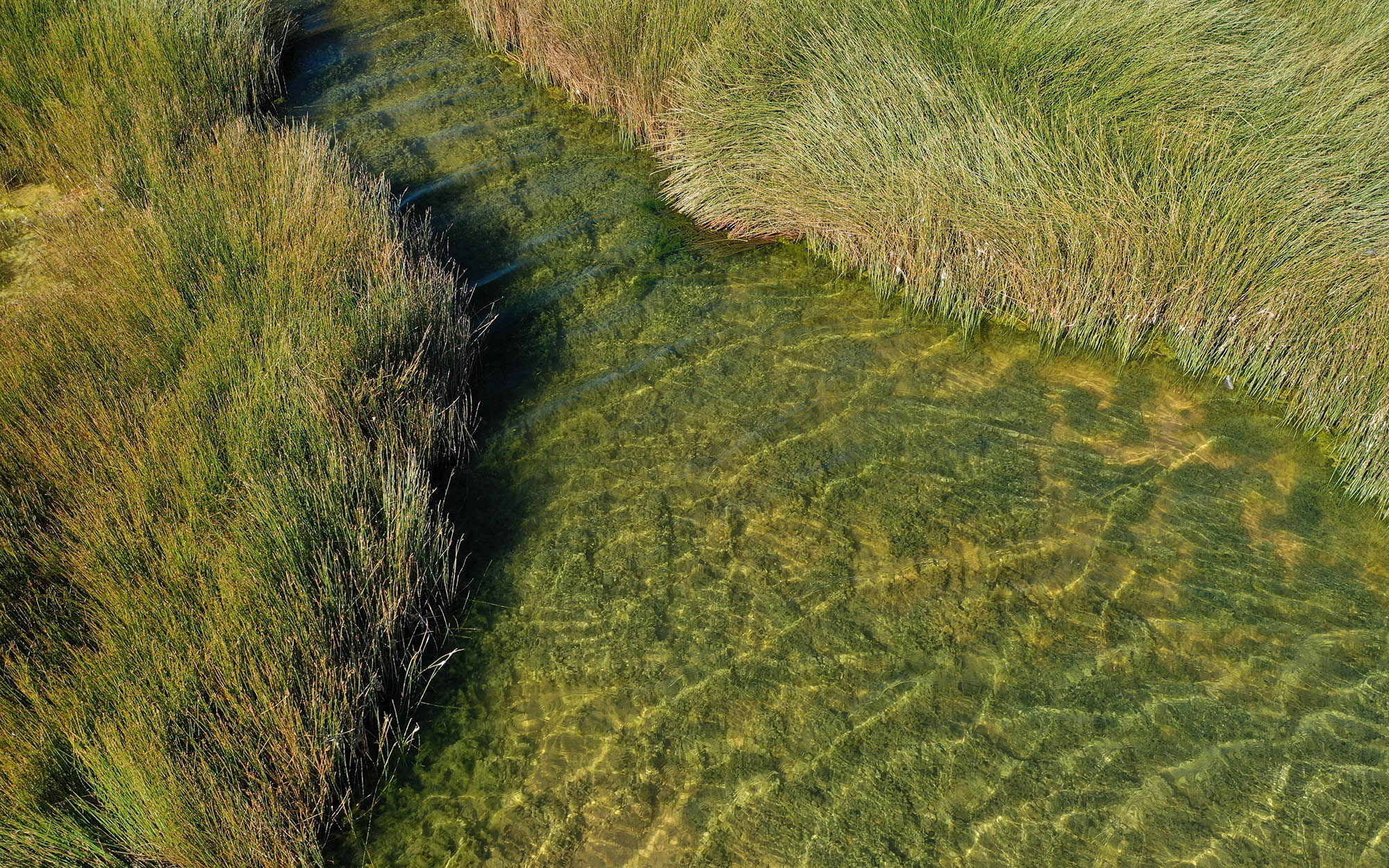NSW Groundwater Strategy
A strategy to deliver on a key action in the NSW Water Strategy: an enhanced focus on sustainable groundwater management.
Read the NSW Groundwater Strategy (PDF. 19.6MB)NSW Groundwater Strategy – Summary
A condensed version of the strategy outlining the strategic context, priorities, and actions.
Read the NSW Groundwater Strategy - Summary (PDF. 3.6MB)About the strategy
Our groundwater resources are becoming increasingly vulnerable due to changing climate conditions, population growth and increased land use. A long-term direction – harnessing the latest science available – is needed to make sure the way we manage groundwater continues to evolve to tackle the critical challenges it faces now and in the future. The NSW Groundwater Strategy delivers on a key priority of the NSW Water Strategy by ensuring an enhanced, state-wide focus on sustainable groundwater management for the next 20 years.
NSW has a robust, world-leading approach to managing our groundwater resources. While this approach has served us well, the NSW Groundwater Strategy builds on and improves the way groundwater resources are managed and used in NSW for the next 20 years.
The strategy has been developed via an evidence-based, whole-of-government process with the technical input of an external advisory panel of world-class experts.
It identifies the main challenges confronting the state’s groundwater resources and the modern-day issues driving the need for our groundwater management approach to evolve and deliver long-term groundwater sustainability for NSW.
Twelve strategic actions, within 3 priorities, underpin the department’s response to these challenges and issues – providing a blueprint for devising and delivering initiatives that will protect and future-proof our groundwater resources.
Strategy at a glance
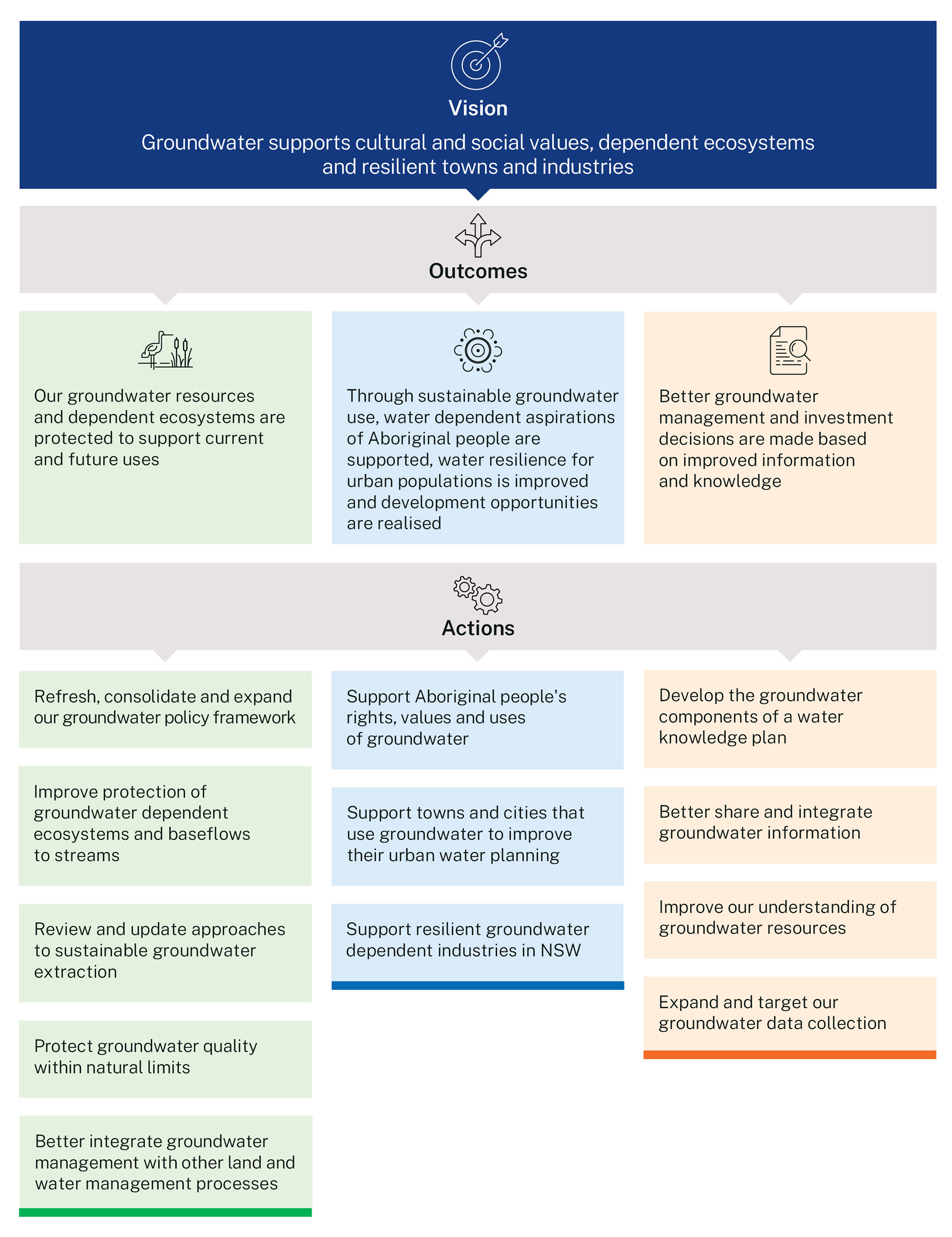
Facts about groundwater
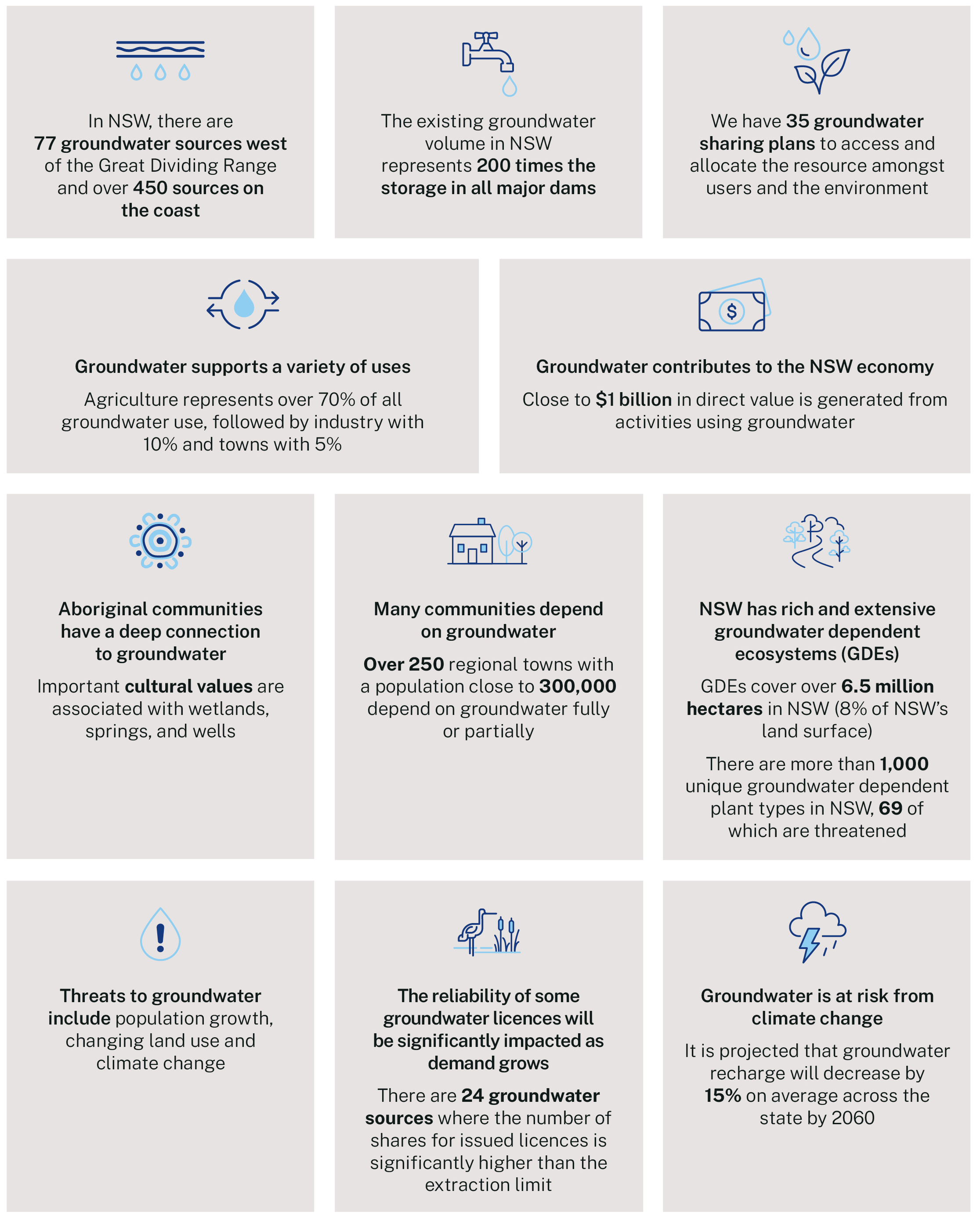
How does the strategy tackle climate change?
A key purpose of the NSW Groundwater Strategy is to ensure we have the right information to inform the right decision at the right time.
The NSW Government is using our new climate data in collaboration with the CSIRO to model the effects that climate conditions may have on groundwater resources.
This report is now available: Impact of climate change on groundwater in NSW PDF, 15528.63 KB
What is Groundwater? from DPE External Communications on Vimeo.
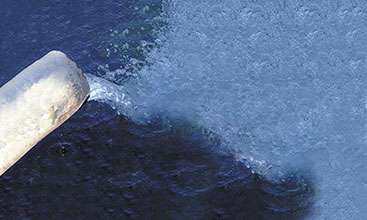
Find out about the strategy’s 3 priorities and 12 actions.
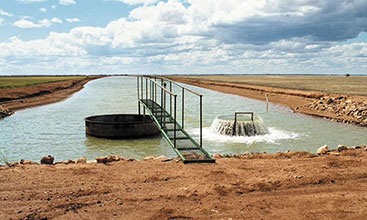
Keep up to date with the action we’re taking to implement the strategy.
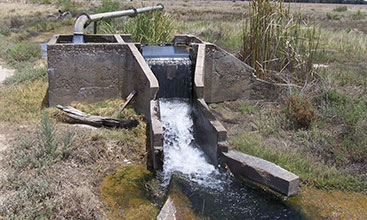
Learn more about our groundwater resources and how they are managed, and the information used in developing the strategy.
Contact us
If you have any questions about the NSW Groundwater Strategy, please email us on nsw.groundwaterstrategy@dpie.nsw.gov.au
